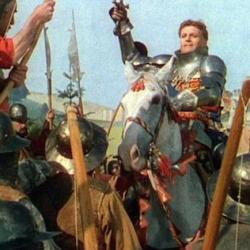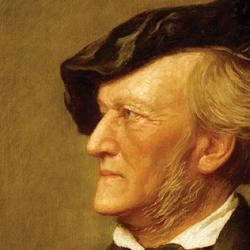In a contribution to Bonds of Imperfection, Joan Lockwood O’Donovan examines varieties of nationalism and the neglected biblical and theological sources for understanding modern nations.
She identifies two strains of nationalism that have developed since the nineteenth century. The first, “romantic nationalism,” takes the nation “as a unique communal totality, at once natural and historical” that “gives rise to and morally justifies the sovereign state.” This totality is characterized and constituted by “a common language and ethnic inheritance—shared sentiments, mores, spiritual capacities, and historical memories—and a continuous relation to a particular soil” (278).
A “civic nation” is not a cause of the state but “coterminous with it” and “a work of it”: “The civic nation comprises the unifying moral and affective bonds of a citizenry in a free, democratic polity; it comprises the ongoing moral-political reality of the ‘popular will’ as a vital community of faith, sentiment, and devotion. A rational communion, the civic nation is formed over time through the operation of political and legal institutions according to universal principles of justice. But it is also a deliberate project of public education and mobilization: of educating citizens in the principles of liberal-democratic political culture and mobilizing them for political action” (279).
A “wedding” of the two conceptions during the inter-war decades was “catastrophic, a harbinger of the century’s worsening political miseries.” Nation-states produced by treaty “were defective on both ethnic-linguistic and civic grounds, lacking homogenous populations, rootedness in the soil, and a history of government.” On the other hand, romantic-civic nations conspicuously failed “to produce justice for [their] minority peoples.” O’Donovan notes that some have seen continuity between “Hitler’s policies of invading neighboring countries with German-speaking populations, repatriating Germans living on foreign soils, and depriving undesirable minorities of citizen-rights” and Wilson’s “logic of national, democratic self-determination.” Beyond Hitler, “all subsequent revolutionary and dictatorial regimes . . . have aggressively sought to recover or emancipate ‘nationals’ in foreign territories and/or have denationalized whole groups of citizens” (280). Putin justifies seizure of Crimea on just these grounds.
After World War II, the UN Declaration of Human Rights likewise embodied an unstable combination of the two forms of nationalism. The declaration’s “liberal individualism . . . has sat ill with the traditional social structures and political authorities of many decolonizing societies” while “the tantalizingly ambiguous promise of self-determination for ‘peoples’ has sat ill with the existing (colonial) boundaries of decolonized nations” (280–1).
O’Donovan charges that Christian responses to these tensions have been inadequate: “Christian thinkers have been all to inclined to endorse or reject [modern ideas and projects] without considering the older biblically-based, theological tradition” (282). She argues that the religious settlement at the heart of liberal order inhibits theological analysis and the possibility of theological correction. Liberalism “prescribes an equality of individual right to religious freedom that entails at best an equal representation of different religions in the public realm and at worst no religious representation at all, while it proscribes the national confession of Christian belief and the national establishment of one or more Christian churches.” Thus, “the advanced civic faith has already determined the unifying culture of political society and does not welcome theological intrusions into its self-understanding” (283).
O’Donovan identifies several specific contributions of this older tradition. One is the “divine vicariate” of civil rulers, the notion that the ruler represents God in his political actions. Modern Christian thinker shy away from this concept, which they associate with absolutism. O’Donovan argues that, on the contrary, the theology of divine vicariate in its classic form limited the power of rulers and provided a barrier against despotism: “most pre-modern theologians considered it imperative that the one who executes public judgment be the earthly representative, or even ‘image,’ of the Heavenly Judge.” This rested on two assumptions: “God’s continuing sovereignty in judging his creatures” and “the radical equality of those created in his image, that forbade any of them coercively to judge his fellows” (289). The more recent conception that the ruler is a vicar of the people has been “a necessary historical condition of modern political tyranny and totalitarianism” (290), as the ruler embodies even the most aggrandizing popular will.
She also highlights the role of the “community of Pentecost, the Spirit-filled body of the exalted Christ,” which exposes the deficiencies and inadequacies of the political order, an artefact of “the old age which is passing away.” Deficiencies of “coercive power, tragically inadequate judgment, and weak vision” from rulers, deficiencies of “inequitable laws, incomplete consent and merely external and episodic obedience from the ruled.” These deficiencies are “judged by the church’s fidelity to the worship and ministries appointed by Christ,” and when the church is unfaithful in this worship the political order loses a humbling sense of its own inadequacy. When the church fails, “civil rulers and commonwealths have correspondingly overstepped their vocations in defensive and offensive maneuvers in spiritual control,” including the attempt to incorporate the church into the nation (286). A faithful church is thus necessary to remind rulers of their limits and their responsibility to God. A faithful church is necessary to the health of a nation, precisely by refusing to become an agency of the nation.
Wise words for our current political climate.















